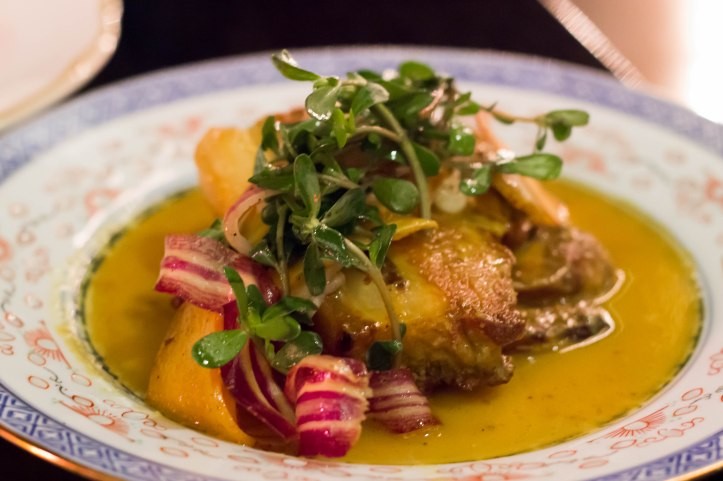Chef Fausto Airoldi considers Macanese cuisine to be one of the first fusion cuisines in the world, given the various origins it has assimilated, and believes that the best of his dishes are still served at family tables.
“Macaese cuisine is not just about Portuguese cuisine; puts in the cuisine of India, Malaysia. It has the influence of Hong Kong, English ”, he told the Lusa agency.
Considered by his peers as one of the most highly regarded cooks in Portugal, Fausto Airoldi was introduced to Macanese cuisine in his youth, when his mother went to work in Macau.
Later, in 2013, he would work in the region, where he joined the Galaxy Macau team as executive head of R&D – Research and Development (research and development) and had 120 restaurants to manage.
In his opinion, almost all dishes in Macanese cuisine “have this mirrored fusion, in one way or another”.
And he gives examples: “They have a duck rice that is like our cabidela. They use duck instead of chicken. They have a pork à bassafá with tamarind, with a more Malaysian influence. They have our feijoada and, obviously, some cod dishes, which they also use”.
“Macaese cuisine also has a lot to do with Cantonese, which is a very tasty cuisine, with onions, garlic. In some things they add ginger and spice. Then they also use products from those areas, such as sugar and saffron from India. They have many herbs different from ours”, he said.
For Airoldi, “unfortunately, or fortunately, Macanese cuisine is still very much home cooking. Good Macanese cuisine is still in Macao families”.
“What you see in the restaurants is something that is sold, let’s say, to a more Chinese public, who come looking for Macanese food, like minchi, bassafá, which are dishes that people come to Macao because they think it’s Macanese cuisine,” he said.
“Restaurants, unfortunately, don’t make Macanese cuisine as good as in people’s homes”, he lamented, with some exceptions.
For this reason, he believes that modernization will reach Macau.
“What I felt when I arrived there [Macao] was what I felt in Portugal when I arrived here, 30 years ago. [The kitchen] was a bit stagnant, there was no modernization, and Macanese cuisine will undergo this modernization in the coming years, ”he noted.
A modernization that will have to take into account the specificity of the region of China, “where there are many people from all over the world” and who are “very culturally sensitive”.
The boss exemplifies with the universe of Galaxy Macau, where he worked nine years, which had 18,000 employees: “Europeans, Americans, from Malaysia, Thailand, Philippines, Indians, Vietnamese, obviously many Chinese and some Macanese”.
“There were restaurants of almost all nationalities and obviously Macanese and Portuguese because in all casinos there has to be a Macanese restaurant and another Portuguese, by law”, he said.
For Airoldi, modernization must be carried out, but “respecting tradition”, whether in Macau or in Portugal, where this step has already been taken.
“We have to innovate while respecting tradition. If we do that, we manage to reach a point where the foreigner, when he eats here, understands our flavors”, said the head chef, currently working on a project in Comporta, in Portugal.
And he recalls what happened to Portuguese cuisine, which “is very tasty, but 30 years ago it was very poorly presented”.
“We look at a bread soup and we know what it is, but a foreigner looks at a bread soup with a raw egg on top and wonders what he’s going to eat”, he observed.
And he concluded: “We have to have this notion. We live in a tourist world, where tourists come from all over the world and we have to present things in a more professional way”.



